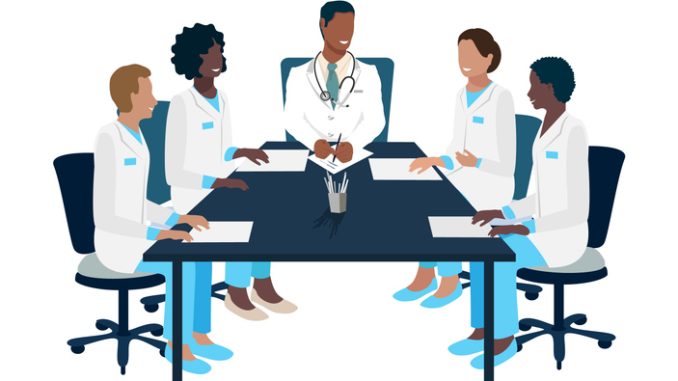
The shift to virtual meetings during the pandemic offered convenience, but it’s also led to weakened interpersonal connections and increased misunderstandings. As we navigate the complex landscape of modern healthcare, practice managers play a vital role in ensuring that both virtual and face-to-face interactions are effectively balanced to maintain trust and cohesion within and between PCNs
CREDIT: This is an edited version of an article that originally appeared on Ockham Healthcare
Four years after the pandemic, most PCN meetings are still virtual. It is much more convenient for practice leads to meet regularly with the other practice leads via a Team meeting than face to face. There is no travel time and the time out of the day caused by these meetings is massively reduced. Plus, it allows opportunities for multi-tasking when agenda items lack any obvious relevance.
The downside of virtual meetings
However, this is having a negative impact on relationships between practices. When people are not meeting face to face relationships inevitably suffer. Maintaining relationships requires at least some face-to-face meetings. We know if we need to have a difficult conversation it is better to do it face to face, yet PCNs will often have these conversations in an online environment. We miss nonverbal communication cues that help us understand what people are saying when we meet remotely (especially when cameras are off!), and as a result misunderstandings and conflict are much more common.
The interpersonal connections that are vital to building trust are missing when we only meet online, and without trust PCNs run into serious problems. With practices now under such financial and workload pressure relationships are inevitably going be strained, and the virtual meeting environment is making this worse.
The impact on protected learning time
Protected learning time events have suffered the same fate. It is a source of consternation for some that their ICB do not support these, but that aside and for those areas where they do happen the majority still take place virtually. This used to be the time when all the GPs and practice staff in an area connected and developed their sense of collective identity. With the turnover and changes in personnel that we have had in the last five years there will now be many staff who know almost no-one from any other practice outside of their own PCN, because they have not had the chance to meet regularly together.
This in turn creates tension between PCNs. Whereas previously local GP leaders could cultivate and call on a sense of collective identity, now if a PCN decides to go its own way regardless of the impact on the rest of local general practice there are often no longer the relationships in place to enable sensible local cohesion.
The simple reality is that given the political context that general practice is operating in right now the biggest support available for GP practices lies within general practice itself. To get through this current set of challenges practices need to stand together and support one another. By continuing to only meet virtually we are making this harder to achieve, exacerbating tension and conflict within and between PCNs. So even though it might feel inconvenient it is important that at least some of the time we bring back face to face meetings


Be the first to comment